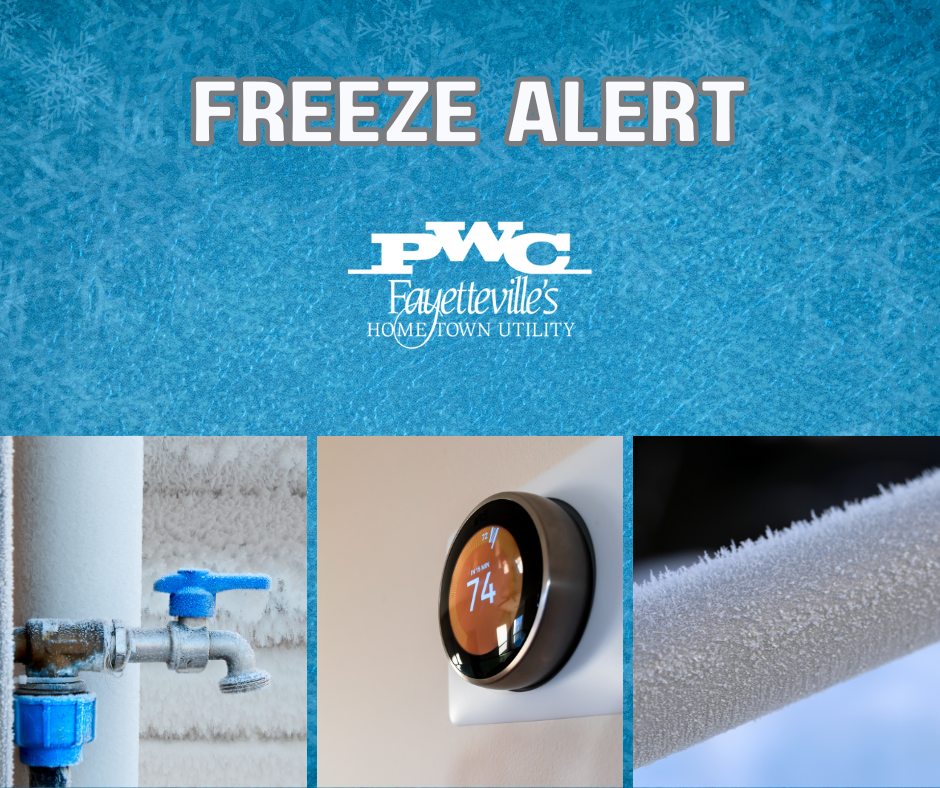Freeze Alert: Chilly Temps = Higher Bills

Cold weather has a significant impact on the condition of your plumbing and winter electric bills, especially when the temperature drops below 32 degrees. Remember these important tips to help protect your plumbing and manage your bill, while staying warm this winter:
- Water lines should be protected during low temperatures. Check around your home for locations where water supply lines are located in unheated areas. Look in the basement, crawl space, attic, garage, and under kitchen and bathroom cabinets. Both hot and cold water pipes in these areas should be insulated. We also recommend locating your master water shutoff valve so you know where it is if you do have a pipe break. It may be near the water heater or the washing machine. More likely it is where the water service pipe enters the house from the street. If a pipe bursts anywhere in the house – kitchen, bath, basement or crawl space – this valve turns it off. Click here for Preventing & Thawing Frozen Pipes
- Protect your irrigation system’s backflow prevention device. These are typically located in your front yard and have a white box-like cover. Insulate the inside of the cover and protect the pipes by wrapping/taping insulation, newspaper, a blanket or even a pool noodle around the pipes to prevent freezing. Click Here to Learn More
- When the weather is very cold outside, let the cold water drip from the faucet served by exposed pipes. Running water through the pipe – even at a trickle – helps prevent pipes from freezing.
- Have a plumber’s telephone number handy. Write it down before you need it in an emergency. PWC’s website provides access to Local, Licensed Contractors information for your reference.
- When adjusting the thermostat on a heat pump system, adjust by no more than two degrees at a time to prevent your system from automatically forcing the auxiliary/emergency heat system to start running. Auxiliary heat costs three times as much to operate and will come on automatically if temperatures get to or below freezing. Learn More About HVACs
- Close your home’s foundation vents to reduce the circulation of cold air underneath your home.
- Heat pumps extract air from outside of your home and transfer it inside to heat the home to the desired thermostat setting. The greater the difference between the outside temperature and the temperature set inside — the more energy used and the more costly your bill.
Try out the PWC Energy Resource Center to analyze where your energy dollars are going . Complete your profile and receive tips on saving on your utility bill, efficiency upgrades, and data on what impacts your heating/cooling system causing it to run longer.
See how extreme cold or hot weather affects your energy usage – and your monthly bill. NC Public Power’s TempTracker 365 gathers, tracks and stores daily high and low temperatures in your area. With a click of a button, you can produce a monthly calendar showing temperatures for the last three years. It’s a great way to see which days, weeks or months were extremely hot or cold, causing your heating or cooling system to run longer.


